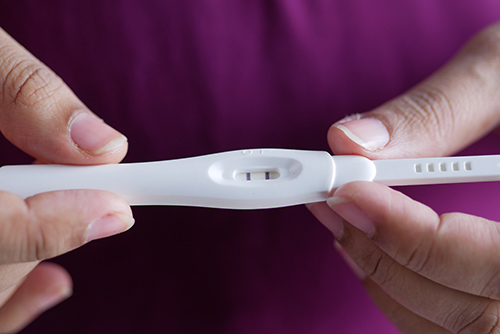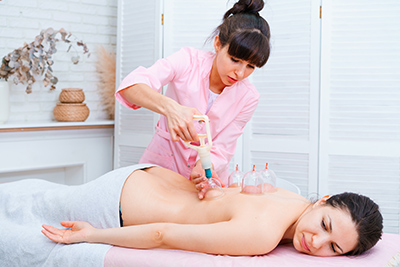Contents
Acupuncture for fertility has been studied extensively and has shown promising results for couples trying to conceive. It is a centuries-old practice that has been used to treat various conditions. In recent years, acupuncture has become increasingly popular as a natural way to address fertility issues.
Acupuncture for Fertility

Acupuncture is an old-fashioned form of Chinese medicine with a long history of treating a variety of conditions. Recently, it has been gaining attention as a potential treatment to improve fertility. Acupuncture works by inserting skinny needles into specific points on the body, which are believed to restore balance to the body’s energy pathways, known as meridians.
Studies have shown that acupuncture can help increase fertility success rates, especially when combined with other fertility therapies such as in vitro fertilization (IVF). Acupuncture is thought to help improve blood flow to the reproductive organs, which can increase the chances of conception.
It is believed to have multiple benefits for fertility. The procedure can help to increase egg quality, regulate hormones, and improve the uterine lining, all of which can improve fertility. While acupuncture is generally considered safe and is often used with other treatments, it is essential to talk to your doctor and a qualified acupuncturist before starting any treatment.
Can Acupuncture Help Treat Infertility
In recent years, scientific studies have demonstrated that acupuncture may be an effective infertility treatment. It can help reduce stress hormones, improve blood flow to the reproductive organs, and stimulate the production of reproductive hormones, thus improving a woman’s chances of conceiving.
Acupuncture is a safe, drug-free treatment option with no known side effects or risks. In addition, acupuncturists may also recommend lifestyle changes such as diet and exercise to help improve fertility. Acupuncture can be used as an adjunct to conventional infertility treatments, such as in vitro fertilization (IVF) or intrauterine insemination (IUI).
Women having difficulty conceiving may want to consider acupuncture a safe and natural way to improve their chances of becoming pregnant. It is essential to consult with an experienced and qualified acupuncturist to ensure that you receive the best possible care.
Acupuncture Points for Fertility

The pressure points for fertility work to improve blood circulation to the reproductive organs and balance hormones, which can help improve fertility. Studies have proven that acupuncture can increase the odds of successful fertility treatments such as IVF.
Acupuncture can also help reduce stress and anxiety, which can significantly affect fertility issues. However, it is essential to note that acupuncture should be used with other fertility treatments, such as herbal remedies and lifestyle changes, to maximize its effectiveness.
It is a safe and natural way to improve fertility, but consult a qualified acupuncturist before beginning treatments. With the right combination of treatments, acupuncture can be an effective way to improve your chances of fertility.
What Types of Acupuncture Techniques are Commonly Used for Fertility
Acupuncture involves inserting needles into specific points in the body to stimulate energy flow, or chi, through the body. This stimulation is thought to help restore body balance, which in turn can improve fertility.
Recent research has shown that acupuncture can be an effective infertility treatment. Several studies have demonstrated the ability of acupuncture to improve fertility, including a study conducted at Harvard University which found that women who received acupuncture treatments while undergoing in vitro fertilization had higher success rates than those who did not receive acupuncture. In addition, studies have shown that acupuncture can reduce stress, which is known to be a significant factor in infertility.
While the exact mechanisms of how acupuncture improves fertility are still being studied, its effectiveness has been demonstrated in numerous studies. It is a safe, non-invasive, and natural treatment option for couples struggling with infertility, and it can be used in combination with other fertility treatments.
What Should I Expect During an Acupuncture Session for Fertility

During an acupuncture session for fertility, a patient can expect a detailed consultation to discuss their fertility health and medical history. A physical exam follows this to assess the patient’s overall health and determine the best treatment plan.
After this, skinny needles will be inserted into specific points on the body to promote the patient’s energy flow. Sometimes, a practitioner may use moxibustion, cupping, or electroacupuncture to promote energy further.
The goal of acupuncture is to create a relaxing environment to encourage healing. As such, the practitioner will also provide advice and support on lifestyle changes to boost fertility. This could include nutrition, exercise, stress relief, and more. With time and dedication, acupuncture can be a great way to improve your fertility.
How Many Acupuncture Sessions Are Typically Required for Fertility Treatments
While acupuncture cannot guarantee a successful pregnancy, it is an effective method of improving the chances of successful fertility treatments. The number of acupuncture sessions required to support fertility treatments varies depending on the individual and their treatment plan. Typically 8-10 sessions are needed to start and may continue every month until pregnancy is achieved.
For best results, acupuncture is most effective with other fertility treatments such as IVF, IUI, and timed intercourse. Acupuncture can support and optimize the body’s natural processes to enhance the effectiveness of fertility treatments.
A study introduced in the journal Fertility and Sterility found that women who received acupuncture before and after their IVF embryo transfer experienced a 65% higher pregnancy rate than those who did not.
Another study found that acupuncture increased the success rates of IUI by 26%. Overall, acupuncture is a safe, natural, and non-invasive alternative fertility treatment that may bring the desired results.
What are the Advantages of Trying Acupuncture for Fertility
As more research is conducted on the benefits of acupuncture for fertility, the potential of this ancient practice is becoming increasingly apparent. One of the main benefits of acupuncture for fertility is increased blood flow to the uterus, which can help improve fertility.
As mentioned earlier, It can also help to reduce stress, which is often a significant factor in fertility issues. Additionally, acupuncture can help balance hormones, improve overall reproductive health, and improve egg quality, a substantial factor in fertility.
It can also help reduce fertility medications’ side effects, such as hot flashes, headaches, and fatigue. This ancient practice can give couples hope and an alternative to costly and invasive treatments.
How Much Does Acupuncture Cost? Does Insurance Cover It
The cost of acupuncture treatments varies widely depending on the practitioner and region but typically ranges from $65 to $125 per treatment. Many insurance plans offer some coverage for acupuncture, and it’s best to check with your insurance provider to see if and how much they cover. Some insurance plans may cover acupuncture treatments related to fertility, though this varies by provider and policy.
Many acupuncturists offer sliding-scale payment options for those without insurance coverage, so getting treatments at a reduced cost may be possible. Be sure to ask your acupuncturist about payment options ahead of time, as the cost of acupuncture treatments can add up quickly.
If you’re considering acupuncture to improve your chances of conceiving, research your options carefully and ensure that you are comfortable with the acupuncturist you choose.
DISCLAIMER: All content on this website is presented solely for educational and informational objectives. Do not rely on the information provided as a replacement for advice, diagnosis, or treatment from a qualified medical expert. If you are pregnant, nursing, or have any preexisting medical concerns, talk to your doctor before using any herbal or natural medicines.
References
- Journal of Clinical Endocrinology & Metabolism – This source provides detailed studies on the impact of acupuncture on PCOS, demonstrating the effectiveness of acupuncture in regulating menstrual cycles and reducing hyperandrogenism: https://academic.oup.com/jcem/article/96/10/3143/2834907
- IntechOpen – This source discusses the effects of acupuncture on PCOS and other fertility-related conditions, highlighting clinical trials and the biological mechanisms involved: https://www.intechopen.com/chapters/48684
- https://www.intechopen.com/chapters/63793
- Fertility and Sterility – This journal provides comprehensive meta-analyses and studies on the success rates of acupuncture combined with IVF, showing significant improvements in pregnancy and live birth rates: https://www.fertstert.org
